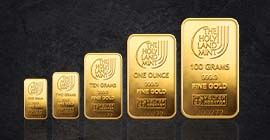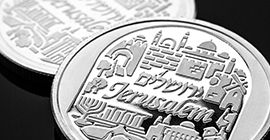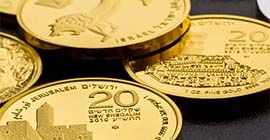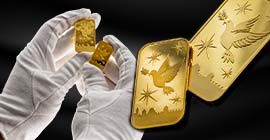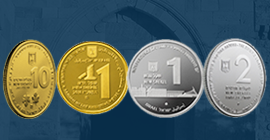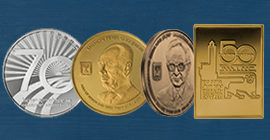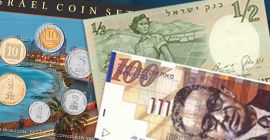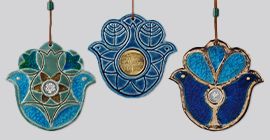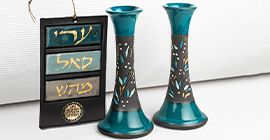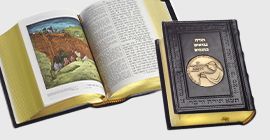Capernaum
Gold 9999, 32 mm, 1Unze
6. in der Serie "Stätten des Heiligen Landes"
SKU
33124320
Auf Lager
Neue Ausgabe
6.343,00 $
Spezifikation
| Ausgabejahr | 2024 |
|---|---|
| Material | Gold |
| Feinheit | .9999 |
| Gewicht | 1 Unze |
| Durchmesser | 32 mm |
| Maximale Auflage | 1800 |
| Design | Ruben Nutels |
Capernaum
6th in the "Holy Land Sites" Numismatic Bullion Series
Capernaum, according to the New Testament, is the ancient settlement where Jesus established the center of his activity for a long period of time after leaving Nazareth. Tradition holds that some of the twelve apostles lived there. The settlement, which was located on the northern shore of the Kinneret and existed from the Hasmonean period to the Byzantine period, is today the center of great importance to Christianity.
Capernaum was founded in the second century BC, according to Hasmonean coins found at the site. In 749 BC the village was completely destroyed by an earthquake and later rebuilt northeast of its previous location. In the 11th century the village was abandoned, and as far as is known was not rebuilt during the Crusader period, despite its importance to Christianity.
In archaeological excavations conducted by the Franciscans at Capernaum's first location, a 5th century church was discovered, built around an earlier structure. This building is recognized in Christianity as the home of Peter who later became the first Pope.
At the new location of Capernaum, about 150 meters from St. Peter's Church, stands the Church of the Twelve Apostles and a Greek-Orthodox monastery founded in 1931. The church has 12 red domes that decorate the roof of the building and colored windows. In Ein Sheva, close to the village, is the Church of the Multiplication of the Loaves and Fish, which commemorates the miracle in which Jesus fed thousands of people with only five loaves of bread and two fish. It is estimated that the original church was built around 350 A.D., and in 1982 a new church was constructed to replicate the original structure.
Two synagogues were also found at Capernaum. One was built of limestone, while the other was made of basalt stone. One synagogue dates back to the Byzantine period. When it comes to the older synagogue, experts disagree as to when it was built. According to Christian tradition, it is believed that this is the exact synagogue where Jesus visited, as described in the New Testament, which dates back to 1 AD. It is intriguing to see that in the 1st century AD, the Byzantine period, the settlement was home to a synagogue and a church.
Today, Capernaum is one of the most fascinating, educational and intriguing Christian centers located on the Sea of Galilee. The village evolved into a large national park that includes a tourist center and a recreation area. A 3.5 km long promenade leads to Ein Sheva, part of the "Jesus Trail" connecting Christianity's holy sites around the Sea of Galilee.
Face: The remains of the synagogue in Capernaum, the year of the imprint. The captions are in English and Hebrew: "Capernaum", the metal fineness and weight: 1oz. fine gold .9999 on the gold / 1oz. fine silver .999 on the silver in Hebrew and English.
Common Reverse of the Series: Collage of different sites in Jerusalem – In the background to the right, the Holy Trinity Church in the Russian Compound, to the left, the YMCA building, in the foreground to the right, the Garden Tomb and to the left, Jesus praying at Gethsemane, front left, part of the "Agony in the Garden" painting by Andrea Montegna. The Holy Land Mint trademark, Inscription "Holy Land Sites" in English and Hebrew.
Design: Ruben Nutels
Minting :The Holy Land Mint
Name der Ausgabe: Capernaum
Name der Serie: Stätten im Heiligen Land
| Katalog SKU | tbl_condition | Durchmesser | Ausgabejahr | Material | Menge | Gewicht |
|---|---|---|---|---|---|---|
| 23124380 | 38.7 mm | 2024 | Silber 999 | 1800 | 1 Unze | |
| 33124320 | 32 mm | 2024 | Gold 9999 | 1800 | 1 Unze |

